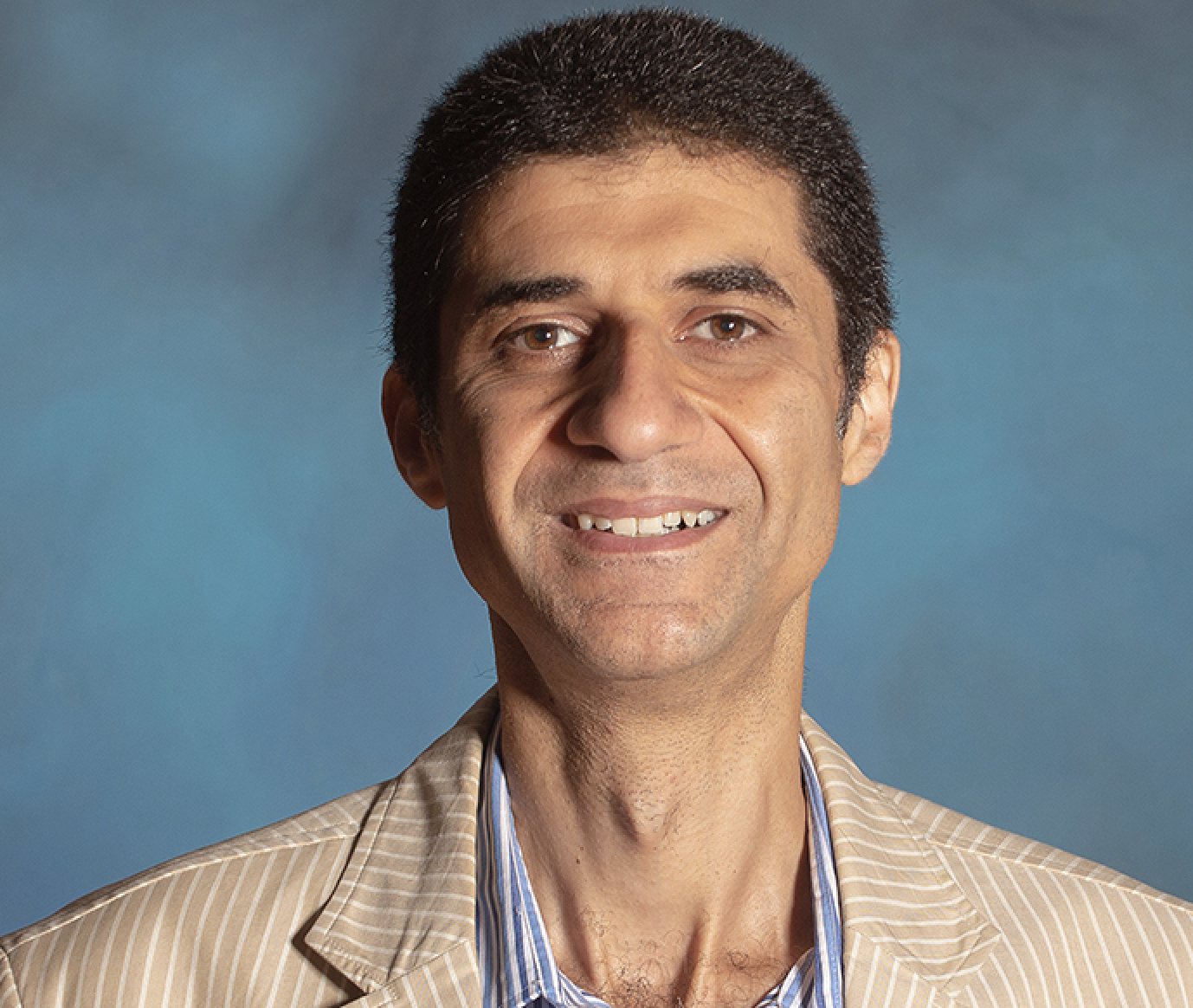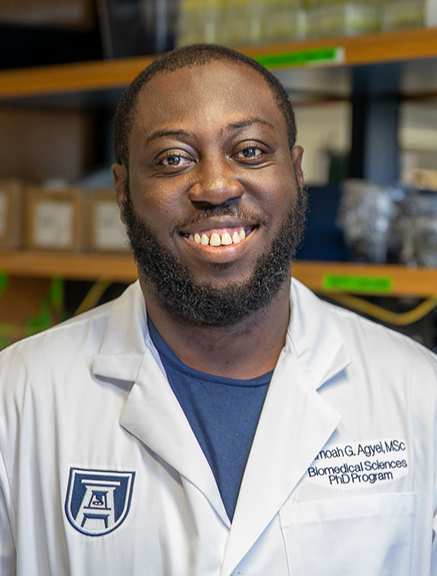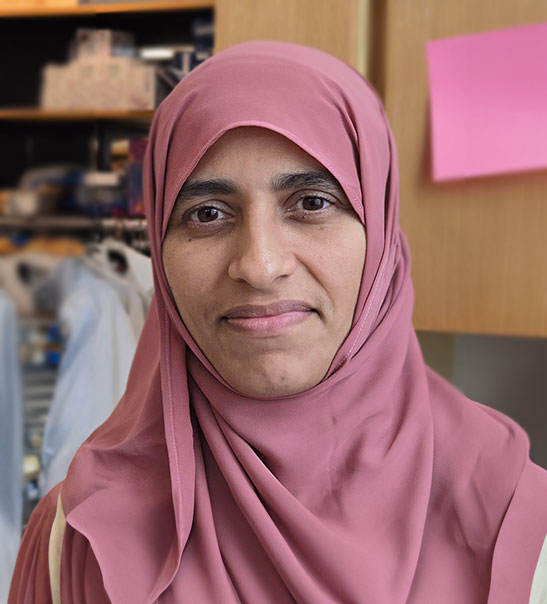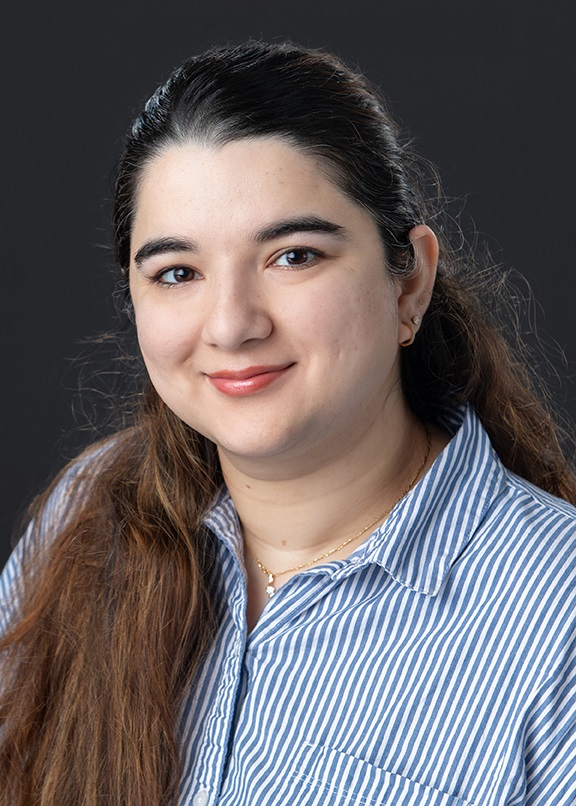
- Augusta University
- Centers & Institutes
- Immunology Center of Georgia
- The Abdelsamed Lab
The Abdelsamed Lab

Hossam Abdelsamaed, PhD
Assistant Professor, Immunology Center of Georgia (IMMCG)
Who We Are What We Study Current Interests Lab MembersSelected Publications
Who We Are
In our lab, we are a diverse team of scientists from around the world united by a shared passion for scientific discovery. By combining our expertise and creativity, we use cell cultures, pre-clinical mouse models, and human-derived samples, trying to understand the immune system during homeostasis and in disease context including chronic inflammation, autoimmunity, and atherosclerosis. If you want to join us, please email!
What We Study
Our lab is broadly interested in how immune cells, particularly CD8 T cells, communicate, differentiate, and behave in both health and disease. We study T cell crosstalk using a dendritic cell free ex vivo co-culture system, revealing how activated memory CD8 T cells can alter the phenotype and transcriptome of naïve CD8 T cells. Further, we are also investigating the role of bystander and self-reactive CD8 T cells in chronic inflammatory conditions such as atherosclerosis, where their contribution to disease progression remains poorly understood. To do this, we incorporate both in vivo and in vitro approaches by combining state of- the-art imaging technology, Flow cytometry/sorting, congenic preclinical disease models, patients’ derived samples, and single cell transcriptomics technologies to decipher these mechanisms. Recently, we started to leverage a physiologically relevant tonsil-like organoid model to study how cytokines shape immune responses, focusing on CD8 T cells and antigen-presenting cells within tissue-like architecture. Together, these approaches enable us to uncover fundamental principles of T cell biology with direct relevance to autoimmunity, chronic inflammation, and cancer.
Research Interests
- T cell communication and its role in chronic inflammation, autoimmunity and cancer
Cell-cell communication is quintessential for coordinating immune responses, and maintaining cell identity, function, and population size. While interactions between innate and adaptive immune cells are well studied, the mechanisms governing T-T cell crosstalk remain elusive. To fill in this knowledge gap, we developed a dendritic cell–free ex vivo co-culture system. Using this approach, we showed that activated memory CD8 T cells can change the phenotype and transcriptome of autologous CD8 naïve T cells. We are now investigating the biological releavnce of this crosstalk and whether its potential role in disease protection or progression.
- Uncovering the role of bystander and self-reactive CD8 T cells during atherosclerosis
Cytotoxic CD8 T cells (CTLs) are classically described as the “serial killers” of the immune system, where they play a pivotal role in protective immunity against a wide spectrum of pathogens and tumors. Ironically, they are critical drivers of transplant rejection, autoimmune diseases, and chronic inflammation, a scenario very similar to the famous novel “The strange case of Dr. Jekyll and Mr. Hyde”.
Atherosclerosis is recognized as a common pathology underlying various cardiovascular diseases (CVDs). It is characterized by chronic inflammation with an autoimmune component. Despite the widespread use of FDA-approved standard therapies such as statins to manage blood LDL levels, CVDs persists a global health challenge with > 600 million cases reported annually. Several studies demonstrated the presence of cytotoxic CD8 T cells in human and mice blood and plaques; yet their role and mechanisms that influence their development especially self-reactive and bystander CD8 T cells are not completely understood. We are investigating these mechanisms using combination of pre-clinical mouse models, patients’ samples, and single cell transcriptomics.
- Leveraging tonsil-like organoids as a model to study inflammation
Another area of investigation that our lab focuses is understanding how cytokines shape the immune responses in the context of bystander and self-reactive CD8 T cells as well as antigen presenting cells. To answer these questions in a physiologically relevant setting, we are using a well-established model of tonsil-like organoid originally developed by Mark Davis’ lab. This ex vivo system closely recapitulates human lymphoid tissue architecture enabling us to dissect the cytokine mediated APC-T cell crosstalk.
Lab Members

Yamaoh Agyei, MS
- PhD Student

Ghana

Farjana Shermen, MS
- PhD Student

Bangladesh

Ishita Tandon, PhD
- Postdoctoral Fellow

India
Selected Publications